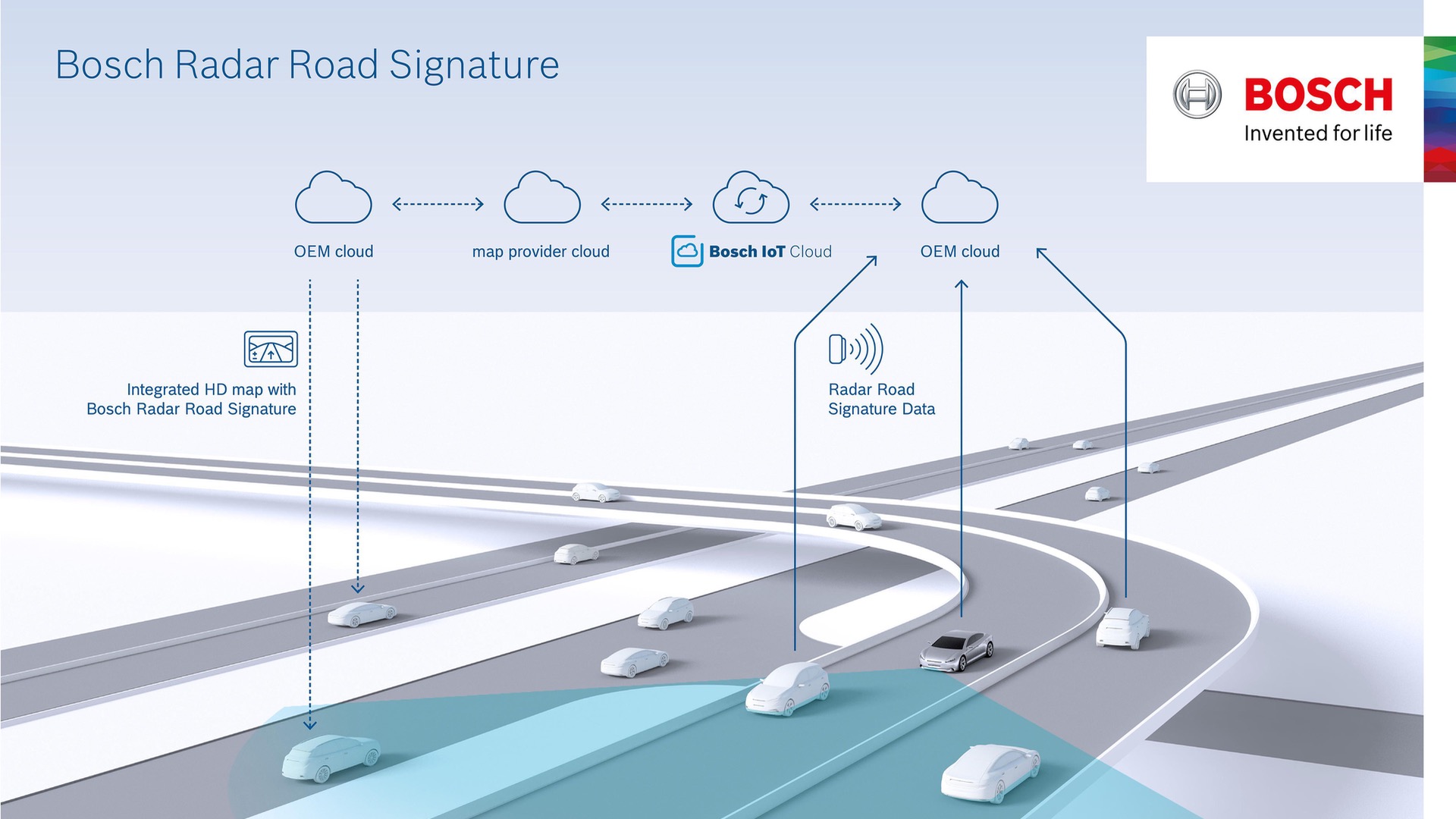

Self-driving cars will need accurate maps to know where they are. Data from sensors like radar and cameras can go a long way to prevent a car from crashing into things or getting lost, but for true autonomy to become a reality, the self-driving vehicles will need to be able to compare this information to existing road information. To help make that happen, Bosch is teaming up with TomTom to develop high-resolution maps based around a “radar road signature.”
These maps will allow self-driving cars to position themselves within an inch using radar data. So instead of compiling visual cues, the “map” will be made up of the signals created by bouncing radio waves off nearby objects.
Bosch claims this new type of map has a number of advantages. It wouldn’t require cars to rely on their cameras, which can be affected by weather or other conditions that hinder visibility. The radar-based map also only uses half the data of a video transmission, causing less strain on networks.
Data for the maps will come from cars already on the road. Bosch hopes to get that process underway by 2020 “at the latest.” The company can use vehicles equipped with radar for driver-assist systems like adaptive cruise control for this purpose, with one important change: The Bosch radar units used in these cars currently only activate when needed, but the company plans to modify them to stay on all of the time, so they can constantly scan their surroundings.
Bosch and TomTom aren’t the only companies planning to crowdsource self-driving car data. Mobileye can pull data from in-car cameras using its Road Experience Management (REM) tech, and apply that to maps. It’s already enlisted BMW, Nissan, and Volkswagen into a scheme that will use their customers’ cars as a source of data.
This may be a good source of real-world data, but it’s bound to create questions about privacy, as well as how customers will be compensated for the data their cars constantly transmit to automakers and tech companies. The companies clearly view that data as valuable…but will they pay the people providing it?